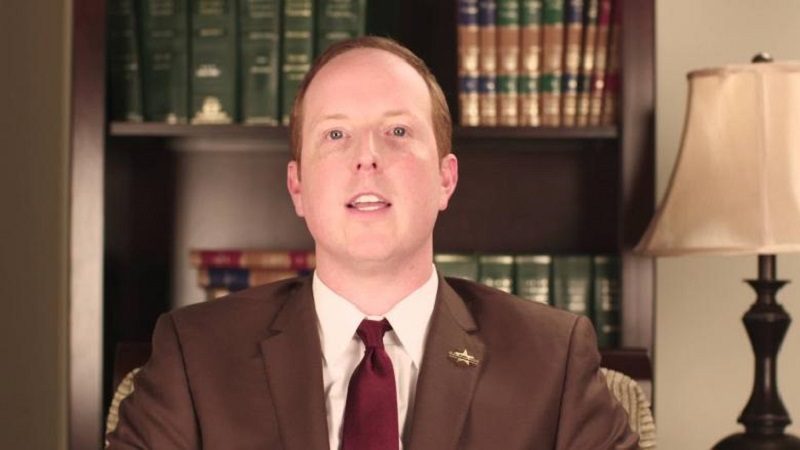Economist Vance Ginn and former state Rep. Jason Isaac co-authored an op-ed that details why they believe Biden’s plan is a mistake and should be rejected by Congress, while offering an alternate plan to revive the economy.
“Let’s start with a simple fact. It’s not economic ‘stimulus’ when someone comes along, takes money from your right pocket and puts some of it back in your left pocket [keeping much of it for ‘other uses],’” the essay states. “That’s sleight-of-hand, not stimulus, which is a reason the government can’t stimulate anything other than more government.”
Isaac and Ginn claim that although the president’s plan has been pitched as a means to assist Americans hurting from the COVID-19 pandemic and related economic damage, it is “a massive, pork-laden bill that seeks to keep many of his lavish campaign promises and shore up support among key constituencies.”
The co-authors called on Congress to reject the measure and reopen the economy. That will provide the economic jolt needed to revive the country, they said.
“The good news is that we know what works,” Ginn and Isaac wrote. “We can truly support more self-sufficiency, dignity and human flourishing by fully opening the economy up.”
Ginn told Dallas Express their goal was to “take a deeper dive” into the economics, energy and environmental policies being discussed in a “quote-unquote infrastructure bill.”
“Educating the public is really the big part of this,” he said.
Ginn said labeling this an infrastructure bill is wildly inaccurate, since only between 5% to 6% of the money would be dedicated to infrastructure needs.
“Instead, it’s more of a social engineering sort of way of moving us toward green energy and moving us toward other things that the progressive wish list has always been,” he said. “And we just think that is not a good direction for Texas and the rest of the country.”
Another option will soon be on the table, as some Senate Republicans are preparing to introduce an infrastructure package with a $600 billion to $800 billion price tag.
“The discussions appear to be under way among a group of 10 Republicans, including Sens. Shelley Moore Capito (W.Va.), Mitt Romney (Utah) and Bill Cassidy (La.), who each hinted at early legislative efforts during interviews over the past day,” according to an April 14 Washington Post story.
Romney said this new package could be more attractive to moderates in both parties. Critics of Biden’s proposal said although it carries the title “infrastructure,” it is loaded with items that have little to no connection to that. Ginn said he looks forward to seeing the final proposal from these centrists.
Ginn said a real infrastructure bill – focused on highways, bridges, broadband, tele-health and other needs – with a price tag between $150 billion to $200 billion would make more sense and reduce the impact on the federal deficit.
More government spending is not the answer, in his view.
“Americans aren’t clamoring for a Green New Deal [when they’re told what it will cost], but they sure would like to dine out, see family members again and open up their businesses without the heavy-handed pandemic measures imposed by governments at every level,” the Texas Public Policy Foundation article states.
The authors said Congress should turn it down, and states should decline to accept some or even all the federal bailout money offered them. The real solution is to adhere to Texas’ practices of less spending, lower taxes and more reasonable regulations, they wrote.
“A great next step would be for the Biden administration to lift its ‘halt’ on new oil and gas permits on federal lands and in federal waters,” the article states. “That action alone would achieve all three of Biden’s stated goals for his ‘stimulus.’ It would reduce emissions by allowing access to cleaner-burning natural gas, it would support many new and existing high-paying jobs for Americans [instead of outsourcing them to other countries, which we’ll be forced to buy our petroleum from], and it would support infrastructure improvement through the taxes producers pay for their use of our roads and bridges.”
Ginn and Issac see hope at the end of what they perceive to be economic uncertainty.
“Ultimately, we can regain the prosperity we had before the pandemic — but not with Biden’s progressive plan,” they wrote.
Ginn said he and Isaac both wrote drafts of their proposed op-ed and put a final piece together. “We both write it together, kind of go back and forth,” he told Dallas Express. “We’re both pretty aligned on these things. We‘ll try to gather more information from each other if maybe we’re not sure about something, we can bounce things. But Jason and I are pretty aligned on these things.”
Ginn said they have had “mixed feedback” to this piece, with some who agree praising it while people on the other aide providing pushback.
“That’s what we’re looking for,” he said. “Being a part of the discussion that’s out there. Educating the public… learning more throughout this overall discussion that’s happening in the public square.”
Ginn, the foundation’s chief economist, served as associate director for economic policy in the Office of Management and Budget at the Executive Office of the President during the Donald Trump administration from 2019-20. He earned a doctorate in economics from Texas Tech University and has been a frequent university lecturer and public policy adviser.
Isaac, the director of Life: Powered at the Texas Public Policy Foundation, represented Hays and Blanco counties in the Hill Country in the Texas House of Representatives for eight years. The fourth-generation Texan was an advocate for lower taxes, election integrity, public education, Second Amendment rights, protecting local groundwater and private property rights.

